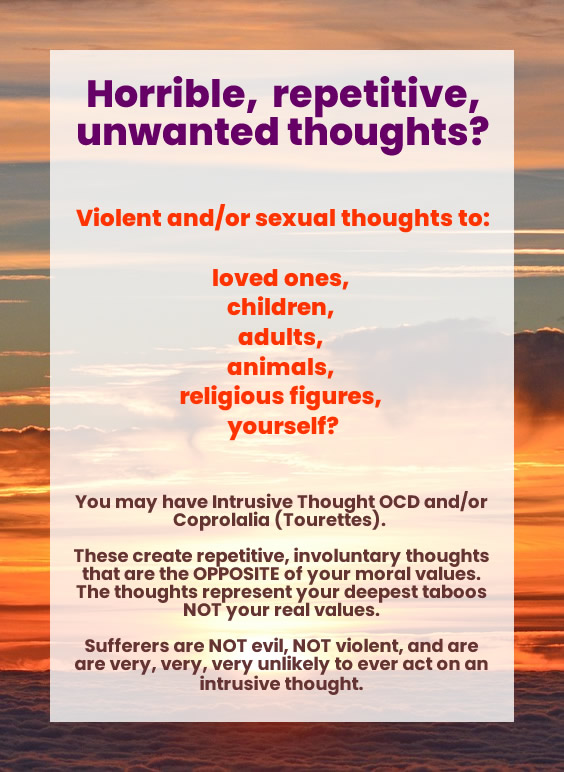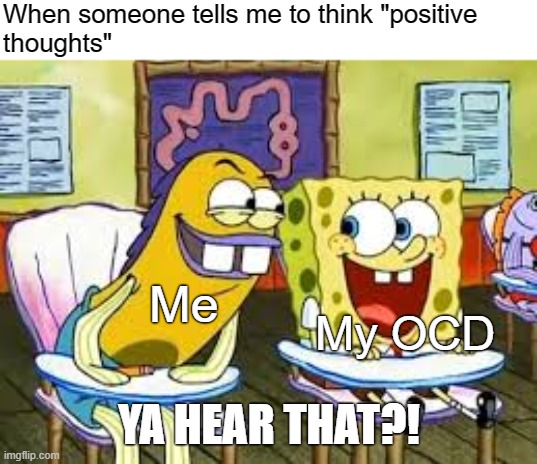

Presence of eating disorder symptoms in patients with obsessive-compulsive disorder.

You can learn more about how we ensure our content is accurate and current by reading our editorial policy. We link primary sources - including studies, scientific references, and statistics - within each article and also list them in the resources section at the bottom of our articles. Medical News Today has strict sourcing guidelines and draws only from peer-reviewed studies, academic research institutions, and medical journals and associations.

ideas about perfectionism, such as being unworthy of love if a person does not achieve a “perfect” body.Intrusive thoughts are common among people with eating disorders such as anorexia nervosa and bulimia nervosa. Intrusive thoughts about eating disorders People experiencing these thoughts may avoid public places and contact with others. using knives or other items to harm others.fearing they have lost touch with their faith or beliefsĪ person may experience thoughts about being violent toward themselves or others.having negative thoughts in a religious building.Types of intrusive thoughts about religion can include a person: obsessive thoughts about a partner leaving the relationship.

constantly seeking reassurance from a partner.analyzing the strength of their feelings for their partner obsessively and finding fault.Examples of this type of intrusive thought can include: People may worry about their relationships, and intrusive thoughts can place a strain on them. fears regarding their sexual orientation.fear of being attracted to members of their family.fear of being sexually attracted to infants.Intrusive thoughts that are sexual tend to revolve around a person’s sexuality or sexually harming others. ” Some intrusive thoughts sound totally irrational: “Just a glance at the wagging tail was enough to start the bad thoughts-he felt compelled to stare at the dog’s anus and his thoughts would start,” and, “he thinks about how easy it would be to throw her defenseless Jessie against a wall and smash her skull.” If a confidant told you they were experiencing such thoughts, with or without the context of an OCD diagnosis, you’d be extremely concerned.There are many types of intrusive thoughts, including the following: Intrusive thoughts about sex and sexuality Some obsessive thoughts may strike the reader as innocuous, even comical: “When he was an adolescent-although he was heterosexual-the worst thing could think of was being gay, which could cause relentless teasing… he would find himself scanning his body to try to feel certain that he wasn’t sexually aroused.” Other intrusive thoughts, the shocking or offensive ones, may seem to reveal disturbing secrets about the sufferer’s unconscious beliefs: “ was now a liberal college student… So now, if he saw an African-American walking toward him on the street, the urge would come to shout. Baer describes several cases of the types of thoughts that torment OCD sufferers, but seen from the outside, his examples may lack the necessary impact to explain the suffering.


 0 kommentar(er)
0 kommentar(er)
